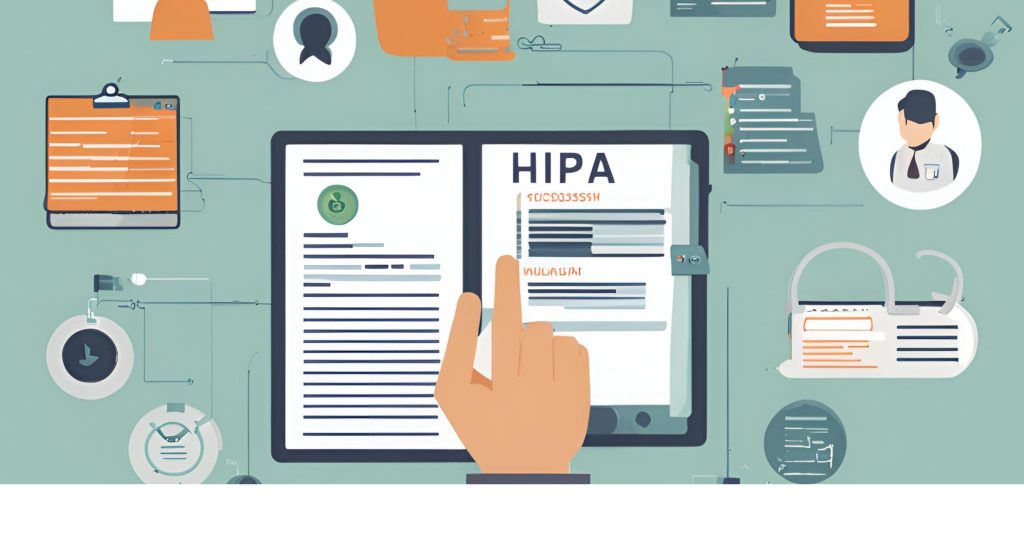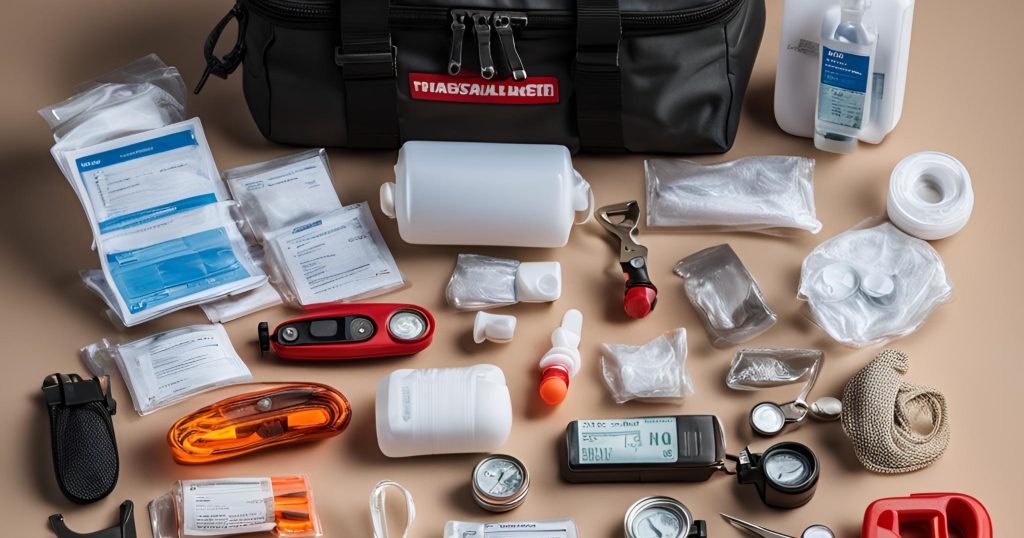
HIPAA Regulations in Medical Billing and Coding In the world of medical billing and coding, compliance with the Health Insurance Portability and Accountability Act (HIPAA) regulations is of utmost importance. HIPAA was enacted to protect the privacy and security of patients’ personal health information (PHI) and to ensure its confidentiality. Failure to comply with HIPAA regulations can result in serious legal and financial consequences for healthcare providers and their staff.
Patient Privacy Protection:
Patient privacy protection is one of the paramount concerns addressed by compliance with HIPAA regulations in medical billing and coding. Here’s why it’s crucial:
Confidentiality of Health Information:
HIPAA regulations mandate the protection of patients’ Protected Health Information (PHI). PHI includes any individually identifiable health information, such as medical history, treatment records, and billing information. Compliance ensures that this sensitive data is kept confidential and not disclosed without proper authorization.
Preventing Unauthorized Access:
HIPAA requires healthcare providers and their business associates to implement strict access controls to prevent unauthorized individuals from accessing patients’ PHI. This includes measures such as unique user IDs, passwords, and encryption techniques to safeguard electronic PHI (ePHI) from unauthorized access or disclosure.
Minimizing Data Breaches:
Compliance with HIPAA regulations reduce the risk of data breaches that could compromise patients’ privacy. By implementing security measures such as firewalls, encryption, and regular security audits, healthcare organizations can minimize the likelihood of unauthorized access, hacking, or theft of patient information.
Enhancing Trust and Confidence:
Patients trust healthcare providers to protect their privacy and confidentiality. Compliance with HIPAA regulations demonstrate a commitment to patient privacy and instills confidence in the healthcare system.
Legal and Reputational Risks:
Non-compliance with HIPAA regulations can result in severe legal and financial consequences, including fines, penalties, and legal liabilities.
Legal Obligations:
Compliance with HIPAA (Health Insurance Portability and Accountability Act) regulations in medical billing and coding is crucial due to various legal obligations. Here’s why:
Regulatory Compliance:
HIPAA is a federal law that sets standards for the protection of individuals’ health information, known as Protected Health Information (PHI). Healthcare providers, including those involved in medical billing and coding, are legally required to comply with HIPAA regulations. Failure to do so can result in significant legal consequences, including fines, penalties, and legal actions.
Civil and Criminal Penalties:
HIPAA violations can lead to both civil and criminal penalties. Civil penalties may include fines imposed by the Department of Health and Human Services’ Office for Civil Rights (OCR), which enforces HIPAA regulations. Criminal penalties can result in fines and even imprisonment for willful neglect or wrongful disclosure of PHI.
Legal Liability:
Healthcare providers and their business associates can face legal liability for breaches of patient privacy under HIPAA.. Legal claims related to HIPAA violations can result in costly settlements or judgments against healthcare organizations.
Contractual Obligations:
Compliance with HIPAA regulations is often a contractual requirement for healthcare providers. Health plans, insurance companies, and other entities may require healthcare providers to demonstrate HIPAA compliance as a condition of participating in their networks or receiving reimbursement for services. Non-compliance can lead to contract termination and loss of revenue opportunities.
State Laws and Regulations:
In addition to federal HIPAA regulations, many states have enacted their own laws and regulations governing the privacy and security of health information. Healthcare providers must comply with both federal and state requirements, which may vary in scope and stringency. Failure to comply with state laws can result in additional legal consequences and liabilities.
Data Security:
Data security is a critical aspect of compliance with HIPAA (Health Insurance Portability and Accountability Act) regulations in medical billing and coding. Here’s why it’s essential:
Protection of Patient Health Information (PHI):
HIPAA regulations require healthcare providers to safeguard Protected Health Information (PHI) against unauthorized access, use, or disclosure. PHI includes any individually identifiable health information, such as medical records, diagnosis codes, treatment history, and billing information. Compliance with HIPAA ensures that PHI is protected from breaches or unauthorized access, reducing the risk of identity theft, fraud, and other forms of misuse.
Prevention of Data Breaches:
Healthcare organizations are prime targets for cyberattacks due to the valuable nature of the PHI they possess. Compliance with HIPAA regulations involves implementing robust security measures, such as encryption, firewalls, access controls, and regular security assessments, to prevent data breaches. By securing medical billing and coding systems and processes, healthcare providers can minimize the risk of data breaches that could compromise patient privacy and lead to legal and financial consequences.
Confidentiality and Integrity of Electronic PHI (ePHI):
With the increasing use of electronic health records (EHRs) and electronic billing systems, protecting electronic PHI (ePHI) is paramount. HIPAA requires healthcare providers to implement technical safeguards to ensure the confidentiality, integrity, and availability of ePHI. Compliance involves encryption of ePHI during transmission and storage, as well as authentication mechanisms to verify the identity of users accessing electronic systems.
Risk Management and Mitigation:
HIPAA regulations mandate healthcare providers to conduct regular risk assessments to identify vulnerabilities and threats to the security of PHI. By assessing risks associated with medical billing and coding processes, healthcare organizations can implement appropriate security controls and mitigation strategies to address potential threats effectively. Compliance with HIPAA’s risk management requirements helps healthcare providers proactively manage security risks and protect patient data from unauthorized access or disclosure.
Incident Response and Reporting:
Despite best efforts to prevent data breaches, incidents may still occur. HIPAA requires healthcare providers to have policies and procedures in place for responding to and reporting security incidents involving PHI. Compliance involves promptly investigating and mitigating security incidents, as well as notifying affected individuals, regulatory authorities, and other relevant stakeholders as required by law.
Ethical Responsibility:

Compliance with HIPAA (Health Insurance Portability and Accountability Act) regulations is of paramount importance in medical billing and coding due to several ethical responsibilities:
Patient Privacy and Confidentiality:
HIPAA mandates strict guidelines to protect patients’ personal health information (PHI). Billing and coding professionals must ensure that PHI is handled securely, preventing unauthorized access, use, or disclosure. Respecting patient confidentiality is not only a legal requirement but also an ethical obligation to uphold patient trust and dignity.
Maintaining Trust:
Patients entrust their sensitive medical information to healthcare providers. Compliance with HIPAA regulations assures patients that their data will be handled responsibly and ethically, fostering trust in the healthcare system. Billing and coding professionals play a crucial role in maintaining this trust by safeguarding patient information.
Integrity in Healthcare Billing:
Ethical billing and coding practices involve accurately documenting and coding medical services. Compliance with HIPAA regulations ensures that billing practices are transparent, honest, and free from fraudulent activities. By adhering to HIPAA standards, billing and coding professionals uphold the integrity of healthcare billing processes, preventing fraud and abuse.
Ensuring Fair Access to Healthcare Services:
Ethical responsibility extends to ensuring that all individuals have fair access to healthcare services. HIPAA regulations help in preventing discrimination based on individuals’ health status or medical history. Compliance with HIPAA safeguards against unfair practices that may hinder access to healthcare services for certain individuals or groups.
Professional Integrity:
Billing and coding professionals have a duty to uphold professional integrity in their work. This includes complying with relevant laws and regulations, such as HIPAA, to maintain the highest standards of ethical conduct. Adhering to HIPAA standards reflects a commitment to professionalism and ethical behavior in the healthcare industry.
Trust and Reputation:
Compliance with HIPAA regulations is crucial for maintaining trust and reputation in medical billing and coding for several reasons:
Patient Trust:
Trust is fundamental in the patient-provider relationship. Patients expect their healthcare providers to safeguard their sensitive medical information. Compliance with HIPAA regulations ensures that patient data is protected, enhancing trust between patients and healthcare providers. When patients trust that their information is handled securely, they are more likely to engage with healthcare services and share important health information, leading to better overall care outcomes.
Reputation Management:
Compliance with HIPAA regulations helps protect the reputation of healthcare organizations and billing companies. A breach of patient confidentiality or a violation of HIPAA can lead to significant damage to an organization’s reputation. Negative publicity resulting from a breach can erode patient trust and deter individuals from seeking care from the affected organization. By prioritizing HIPAA compliance, healthcare entities can safeguard their reputation and maintain the trust of patients and the broader community.
Legal and Financial Consequences:
Non-compliance with HIPAA regulations can result in severe legal and financial consequences. Fines, legal penalties, and civil lawsuits can arise from HIPAA violations, leading to significant financial losses for healthcare organizations and billing companies. Moreover, the reputational damage resulting from a HIPAA breach can have long-lasting effects on an organization’s viability and standing within the healthcare industry.
Competitive Advantage:
Demonstrating commitment to HIPAA compliance can provide a competitive advantage in the healthcare market. Patients are increasingly aware of the importance of privacy and data security in healthcare, and they may choose providers and billing companies based on their reputation for safeguarding patient information. By prioritizing HIPAA compliance, organizations can differentiate themselves from competitors and attract patients who value privacy and trustworthiness.
Ethical Obligation:
Beyond legal requirements, there is an ethical obligation to protect patient privacy and confidentiality. Upholding the principles of patient autonomy, beneficence, and non-maleficence requires healthcare organizations and billing professionals to prioritize the protection of patient information. Compliance with HIPAA regulations reflect a commitment to ethical conduct and reinforces the values of integrity and respect for patient rights.
Business Continuity:

Compliance with HIPAA regulations is essential for ensuring business continuity in medical billing and coding for several reasons:
Legal and Regulatory Compliance:
HIPAA regulations establish legal requirements for the protection of patient health information. Non-compliance can result in significant penalties, including fines and legal action. By adhering to HIPAA standards, medical billing and coding companies mitigate the risk of regulatory violations that could disrupt business operations or lead to financial losses.
Data Security and Privacy:
HIPAA compliance mandates robust measures to safeguard patient health information from unauthorized access, disclosure, or misuse. Implementing strong data security protocols and privacy practices reduces the risk of data breaches and protects sensitive patient data. Maintaining the confidentiality and integrity of patient information is critical for preserving trust with clients and patients, thereby sustaining business relationships and continuity.
Risk Management:
Compliance with HIPAA regulations involves conducting risk assessments and implementing risk management strategies to identify and mitigate potential threats to patient data security. By proactively addressing risks such as data breaches or security incidents, medical billing and coding companies minimize disruptions to business operations and maintain continuity in service delivery.
Business Reputation:
A HIPAA breach can have severe consequences for a company’s reputation. Negative publicity resulting from a breach can erode trust with clients and patients, leading to reputational damage and potential loss of business. Maintaining HIPAA compliance demonstrates a commitment to protecting patient privacy and security, enhancing the company’s reputation as a trustworthy and reliable partner in medical billing and coding.
Client Expectations:
Healthcare providers rely on medical billing and coding companies to handle sensitive patient information with the utmost care and confidentiality. Compliance with HIPAA regulations aligns with client expectations for data security and privacy, fostering trust and confidence in the company’s ability to safeguard patient information. Meeting these expectations is essential for maintaining long-term client relationships and sustaining business continuity.
In summary, compliance with HIPAA regulations in medical billing and coding is essential for protecting patient privacy, fulfilling legal obligations, maintaining data security, upholding ethical standards, preserving trust and reputation, and sustaining business operations within the healthcare industry.
Recent Comments